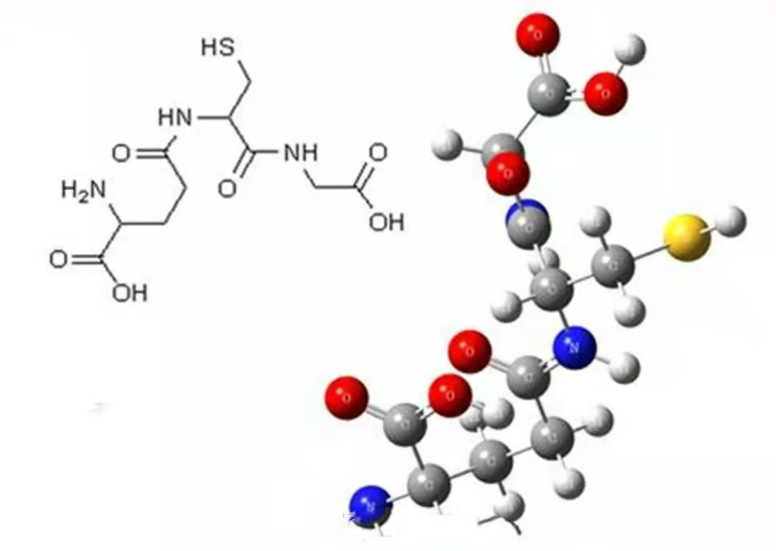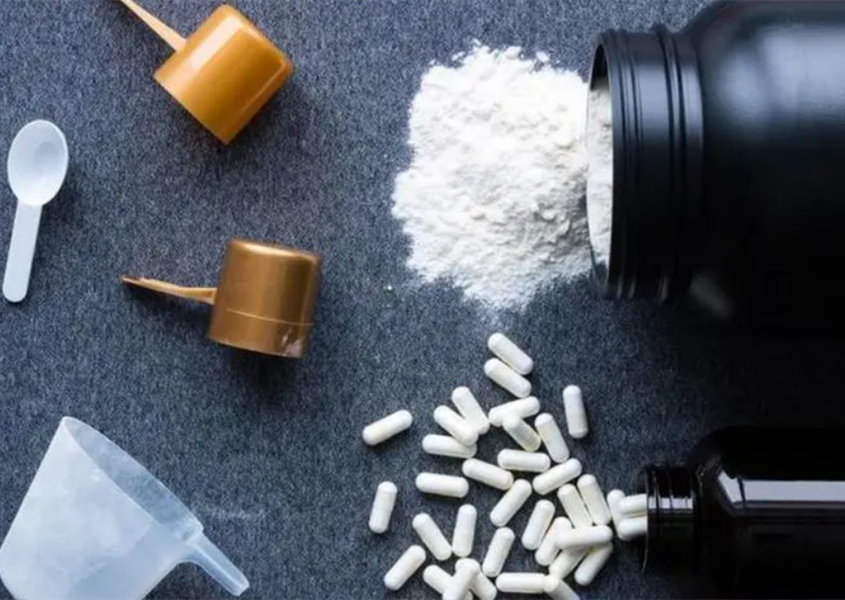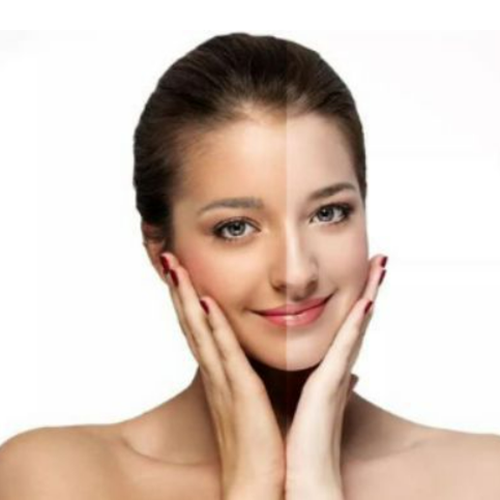Glutathione has long been known for its ability to help improve skin conditions. It can help solve the problem from the inside out, preventing skin oxidative stress and helping cells heal and regenerate themselves. Some studies have suggested that L-Glutathione may be helpful in reducing hyperpigmentation due to sun exposure or other factors, and then make your skin whitening, is this true? let’s talk about from the properties of L-Glutathione.
As we know, L-Glutathione is an antioxidant that helps protect the skin from oxidative damage caused by free radicals. It can help reduce the signs of aging, such as wrinkles and age spots. It may also help to brighten the complexion and even out skin tone. In addition, it can help to detoxify the skin, reducing inflammation and improving overall skin health. L-Glutathione has been shown to be beneficial in treating acne as well as helping with healing after cosmetic procedures such as laser treatments or chemical peels. As we age, our body releases oxidative stress, which causes cells to break down. Antioxidants, like lemon juice, help prevent this by preventing free radicals from breaking down your cells. Active glutathione helps your cells make energy by protecting mitochondria, which are the powerhouses in every cell.
Also, L-Glutathione is also one of the most important nutrients you should focus on as you detoxify. Besides promoting cellular and overall health, it’s critical for liver detoxification and plays an essential role in preventing oxidative stress from damaging toxins like mercury, lead, pesticides and alcohol. Studies show that it removes heavy metals like arsenic, lead, and mercury from the body, preventing them from accumulating in your organs and tissue. It helps prevent and treat acne, wrinkles, and fine lines, as well as improve skin elasticity. It also has the ability to brighten your skin and lighten the discoloration associated with tan and freckles.
And then back to the question, is L-glutathione good for you skin whitening?
Yes! L-Glutathione is an antioxidant that is known to help lighten the skin, making it look more even and less pigmented. How does glutathione do it? Let’s start with how human skin ages and darkens. Glutathione plays an important role in the biochemical defense system of the human body. It can not only eliminate free radicals in the human body, but also improve the immunity of the human body. It can also protect hemoglobin from oxidation of hydrogen peroxide, free radicals and other oxidation so that it can continue to play the normal oxygen transport capacity. Under the action of oxidizing agents such as hydrogen peroxide, some hemoglobin in red blood cells is oxidized to iron trivalent, which changes hemoglobin into methemoglobin, thus losing the ability to substitute oxygen. Reduced glutathione can directly combine with hydrogen peroxide and other oxidants to produce water and oxidized glutathione, and can also reduce methemoglobin to hemoglobin.
L-Glutathione binds to copper ions on the tyrosinase molecule, inactivates tyrosinase and then it inhibits melanin production. Glutathione lowers free radicals and peroxides, reducing the biochemical activity of melanocytes causing it to interact with dopamine to reduce melanin formation. Glutathione also neutralizes the toxicity of pigment cells and prevents cell necrosis and deterioration. Glutathione can help reduce the production of melanin and increase the levels of collagen. It helps prevent age spots and discoloration, as well as improve overall skin tone. It works by inhibiting the function of an enzyme called tyrosinase, which is responsible for producing melanin (the pigment that gives your skin it’s color). By reducing the amount of melanin produced, glutathione can make your skin appear lighter.
However, Although glutathione is known to lighten your complexion, it is important to use it in moderation or in conjunction with other treatments such as sun protection and a healthy diet to maximize its lightening effects. Whether you’re looking to improve your skin condition or overall health, glutathione may be worth considering.
So if you want to keep your skin healthy and whitening, try some L-glutathione supplements into your daily routine to see for yourself. You can find glutathione in some foods, but taking supplements is the best way to ensure you’re getting enough of this important nutrient. Studies have shown an enhancement of overall complexion in individuals who take glutathione, as well as a reduction in wrinkles, unevenness of skin tone, dryness and acne scarring. It is clear that adding this important antioxidant to your diet can have positive impacts on the health of both your internal organs as well as your external appearance!
- Dandelion Extract: What It Is, Benefits, Uses and Side Effect - April 23, 2024
- Is Berberine Extract Help For Weight Loss? - April 11, 2024
- Why Is Pysllium Husk Powder A Popular Meal Replacement Ingredient? - April 3, 2024




